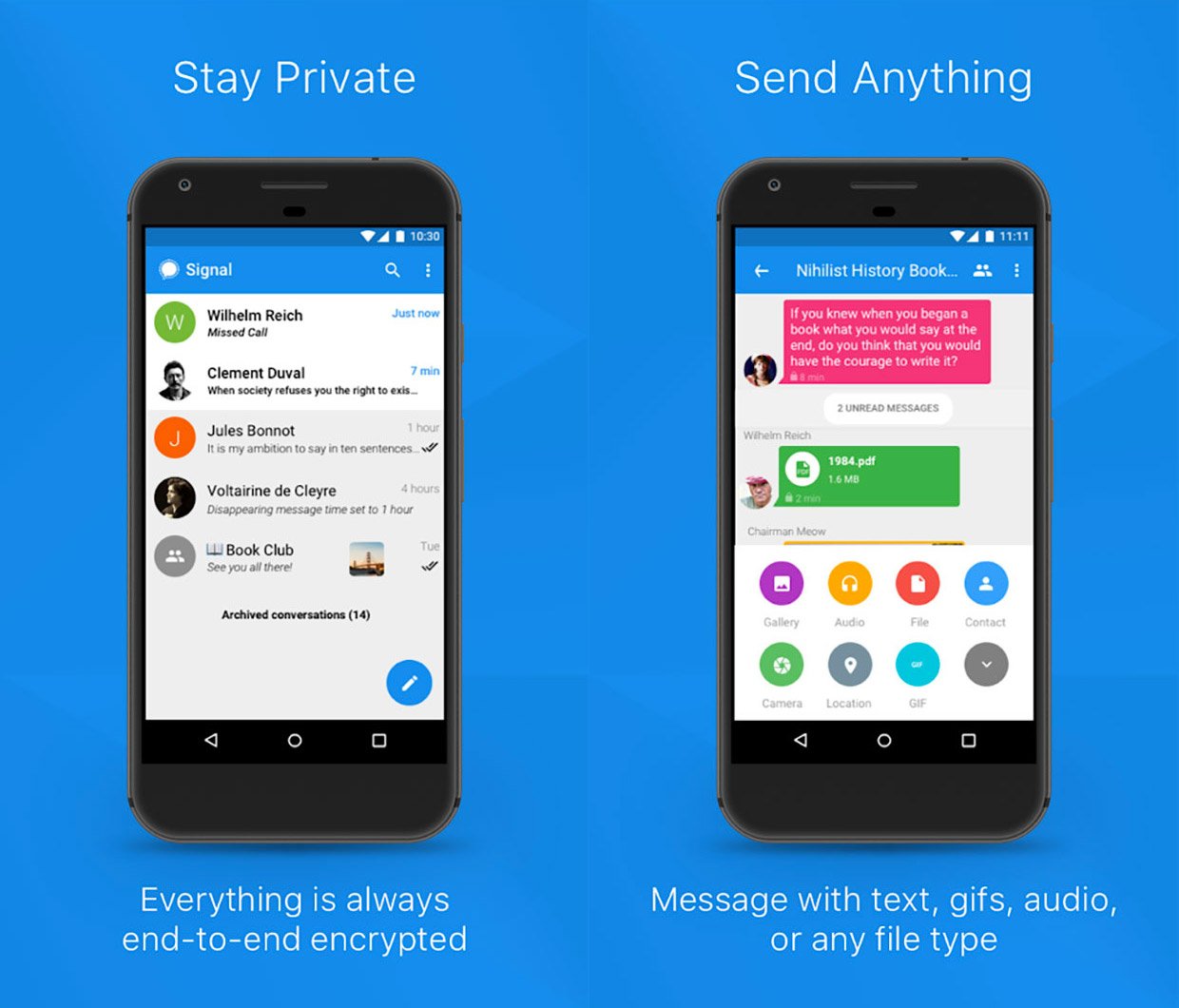

As for information sharing, like any encryption-based service, Signal secure messaging can and will hand over any information that the government legally requests, but considering Signal doesn’t store much data on you, it’s the most privacy-friendly messaging app in the market. The Signal app secures even your IP address and makes sure that it doesn’t get shared with third parties.

Unlike Whatsapp, Signal doesn’t store any information on you except your phone number, random keys, and profile information. This means anyone can audit the source code.īack in 2016, security researchers ran a full and independent audit of the Signal text app and found the app to be cryptographically secure. Open-Sourceīeing an open-source software application,The Signal messaging app has publicly released the source code. This way even if someone got hold of the recipient's phone, without the owner’s passcode, they cannot access the stored messages. Similarly, all stored messages on Signal are also encrypted. This eliminates the access of a third-party data overseer to your messages. Messages sent to a Signal user can only be decrypted by the recipient(s). What’s great about Signal Private Messenger App? 1.

Who Created Signal Private Messenger App? The app supports Linux, Mac, Windows, IOS, and Android operating systems. The encryption based messaging app has over 10 million users and unlike WhatsApp, it doesn't share your data with Facebook for ad targeting. Users can also send regular text messages to non-Signal contacts, but they will not be encrypted. Moreover, this has resulted in a boost in the popularity of the Signal app due to its privacy policies. In recent privacy updates, WhatsApp has faced some questioning and mistrust of its users. Signal, launched in 2014 by Open Whisper System, is an open-source messaging app that allows users to send encrypted text messages and voice memos, and make video calls using the internet.


 0 kommentar(er)
0 kommentar(er)
